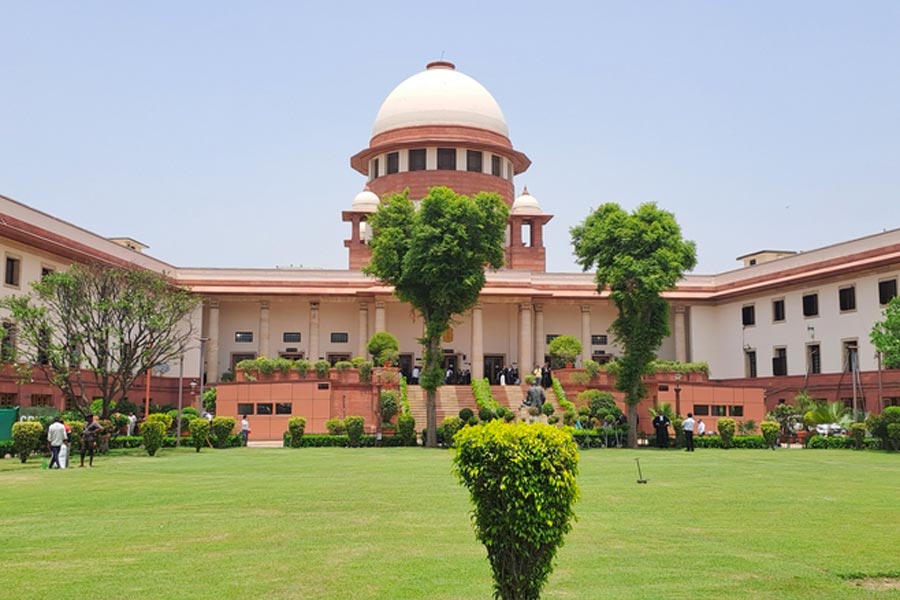The Supreme Court on Monday denounced the Centre’s continued defiance of the collegium’s recommendations for the appointments and transfers of judges of high courts and warned that if this continued, it could lead to "something unpleasant".
The apex court regretted that the transfer of at least six judges, including four from Gujarat High Court, recommended by the collegium had been withheld by the Centre and said this did not augur well for the system.
"As per our information, you have issued transfer orders for five people, but not for 6 others — 4 of them are from Gujarat. This does not send a good signal. Don't do selective transfers. It creates its own dynamics. Allahabad, Delhi, and 4 from Gujarat — 6 in total. What signal do you send when out of the transfers recommended, 4 judges from Gujarat are not transferred at all?" the bench of Justice Sanjay Kishan Kaul and Justice Sudhanshu Dhulia orally asked attorney-general R. Venkataramani during a hearing.
Venkataramani sought a week’s adjournment to come back with instructions from the government, but the bench said it was not happy with the way the matter was being dealt with by the executive.
Justice Kaul said the government’s reluctance to transfer the judges despite the collegium’s recommendations had created a piquant situation.
“What will happen at some stages is, we cannot let judges whom we do not want to work in a court to continue to work there. It will dilute the authority of the judges. This could mean something unpleasant. Please don’t let this happen,” Justice Kaul told the country’s highest law officer.
In other words, the court indicated that if the government continued to sit on the transfer of judges, the collegium might have to withdraw judicial work from those judges whose transfers had been withheld by the government.
“Why will the candidates agree for their elevation, if the seniority is disturbed?” the bench asked.
Senior advocate Dushyant Dave, appearing for one of the petitioners, brought to the court’s notice the recent decision of Gauhati High Court to defer the swearing-in of Kaushik Goswami as a judge on the ground that the other candidate recommended by the collegium on October 17 — N. Unni Krishnan Nair — was not cleared by the Centre though both names were sent in the same file.
As the high court deferred the swearing-in, the Centre beat a hasty retreat and cleared the appointment of Nair.
Justice Kaul agreed with Dave and added: “Let me say they were advised to.” He did not elaborate.
"It's good. We appreciate the stand taken by the collegium and the consequent action by the government," the bench said.
The bench recorded in a written order an appreciation of Gauhati High Court’s decision to defer the swearing-in of judges to prevent seniority being hit by the government's “pick and choose” policy.
Earlier, at the last hearing on November 7, the apex court had told the Centre that the “pick and choose” method adopted by the government in clearing appointments of judges must stop as it was creating serious anomalies and affecting the seniority of judges.
“This selective business… this pick-and-choose method must stop. This is not an off-hand remark, but something I have discussed with my colleagues in the collegium. I flag this issue because people lose out on their seniority….” Justice Kaul had told the attorney-general during the hearing on November 7.
The bench was dealing with separate applications moved by the Bengaluru Advocates Association, Supreme Court Bar Association and the NGO Common Cause challenging the Centre’s blocking of the collegium’s recommendations despite reiterations.
Under the memorandum of procedure that governs the appointment process, once the collegium reiterates a name, the Centre has to clear it. Despite the procedure being clear, the Centre has remained adamant, drawing the ire of the court.










